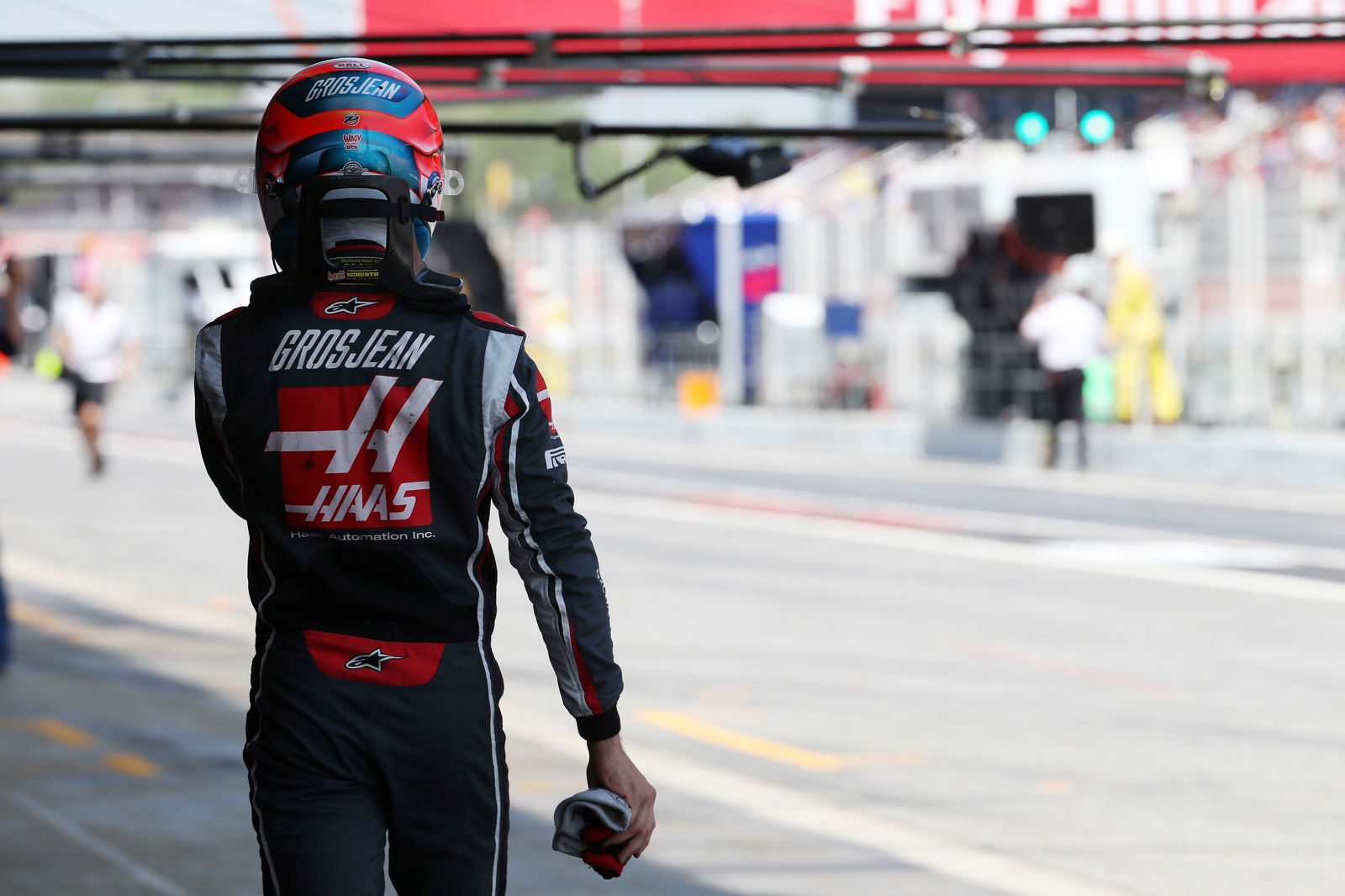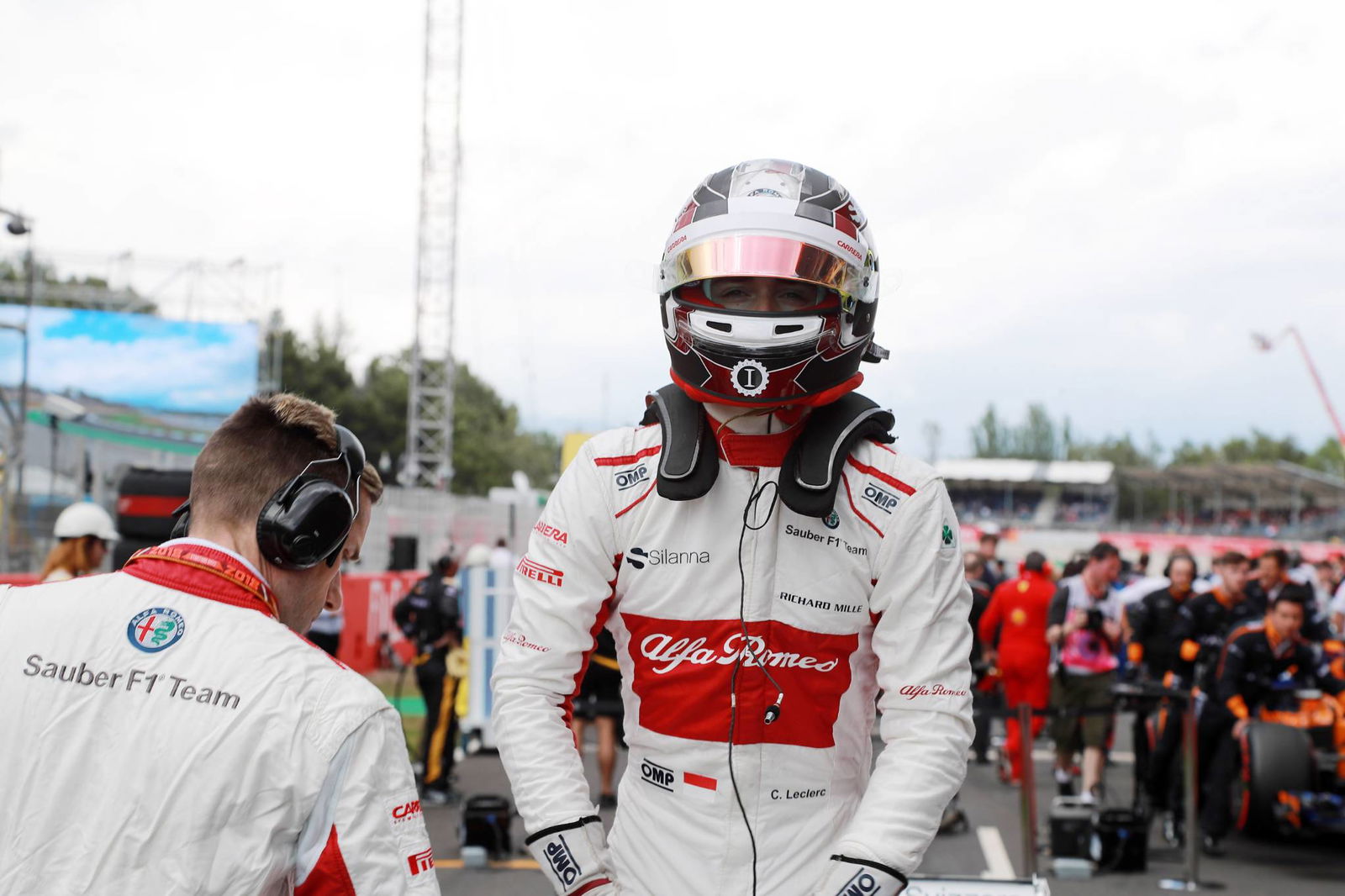F1 Race Analysis: Is Ferrari's Spain defeat reason to panic in the title race?
After thrilling contests in Bahrain, China and Baku, Sunday’s Spanish Grand Prix saw Formula 1 revert to a more leisurely, perhaps even predictable beat.
Lewis Hamilton bounced back from a rocky start to the season to deliver by far his most complete performance to date in 2018, driving with the kind of swagger and confidence that has been present at the highest points of his F1 career.

After thrilling contests in Bahrain, China and Baku, Sunday’s Spanish Grand Prix saw Formula 1 revert to a more leisurely, perhaps even predictable beat.
Lewis Hamilton bounced back from a rocky start to the season to deliver by far his most complete performance to date in 2018, driving with the kind of swagger and confidence that has been present at the highest points of his F1 career.
Pole position may have come as something of a surprise for Mercedes given Ferrari’s recent form, yet in the race, Hamilton was in a league of his own. The 20-second gap to Mercedes teammate Valtteri Bottas was impressive given they ran on identical strategies - but the bigger warning shot in the title race was the 27-second gulf to Sebastian Vettel.
The worry for some of the drivers in the hunt for the championship was that Hamilton’s fortuitous win in Baku could light the blue-touch paper on a surge to a fifth title for the Briton. Had he arrived in Spain still winless, still struggling, the pressure would be on - much as it was in 2016. Instead he arrived in a good groove, and further delivered with a devastating display at the front.
Is it a sign of things to come? Has Mercedes finally hit its stride and tamed the diva far earlier than it did last year? Ferrari and Red Bull will be crossing everything in the hope that Spain was a one-off, and that the chasm to the Silver Arrows won’t be so great at other venues.
There are a few factors that will give the chasing teams some hope. The biggest talking point through the race weekend was Pirelli’s tyre modifications for Spain, reducing the tread of the compounds by 0.4 mm to prevent the tyres from overheating and blistering in the same way they did through pre-season testing. Mercedes had come off particularly badly on the front during the winter running, fuelling suggestions the tweaks for Spain had come at its behest - something Toto Wolff called "bollocks."
That said, it can’t be denied Ferrari had the worst of it on the tyre front this weekend - or, more precisely, Vettel. Even after his first two practice sessions on Friday, the German driver had noted how different the tyres felt, with the loss in tread making them even harder. His struggles on the Mediums forced him to go for a two-stop strategy, dropping him from P2 to P4 in the process.
Had Vettel not been forced to switch to Softs at the end of Q3 on Saturday, he would have had a fresh set for the final stint; with them all used up, he had to go for another set of Mediums instead. By contrast, teammate Kimi Raikkonen felt it would have been “easy” to one-stop, while the Red Bulls found it particularly straightforward to get to the end without coming in again.
“I think we struggled all weekend with sliding around a bit more,” Vettel explained post race. “We have heard many times that they are the same compounds and not harder, but then I don’t think you need to be a genius to work out that if you skim the tyre it ends up being harder.
“We may as well just have run harder tyres. Maybe it didn’t suit our car as well as the other cars, but again what does it matter? It has to suit our car better than other cars. That’s the way we want to turn it.”
Vettel wasn’t crying foul about the changes. The F1 mantra of “it’s the same for everyone” rang true. But even with the benefit of hindsight, Vettel was adamant that a two-stop strategy was the way to go, having dissuaded Ferrari from switching to ‘Plan B’ - a one-stopper - mid-race.
“We couldn’t make the tyres last, so for us, it was clear we come in again. I think it was the right thing to do,” he said.
“If you look from outside it’s easier, but inside the car, we were going through the tyres too quick. Therefore we were not able to stay out for another 23 laps. Even in the end, with a fresher set, I wasn’t able to attack until the end.”
As poor as Vettel’s tyres may have been feeling, there was no dramatic drop-off in pace to suggest he was about to drop down the field dramatically. Towards the end of his stint, he was still running in the low-1:21s, in fact going faster than he did not long after taking the tyres on. Sure, there was a slender dip in pace, but nothing to suggest that Verstappen - at that point running 15 seconds behind - was about to make any serious inroads.
Ferrari played it safe by bringing Vettel in for a second time. Maybe it was pinning its hopes on the Virtual Safety Car called for Esteban Ocon’s being upgraded to a full Safety Car that would bunch the field. Maybe it wanted to gamble for victory instead of settling for third, assuming Bottas would have made it past, of course.
The end result is that Ferrari is once again left with a sour taste of defeat, and heads to Monaco a decent number of points behind in both championships. The solace is that this was the first race of the year Vettel didn’t really stand much chance of winning at any point.
But Ferrari isn’t looking to hit the panic button after one defeat. It knows the tyre scenario played against it, working in Mercedes’ hands. It also knows that the tyre selection from Pirelli won’t be as hard as this for another five races at Silverstone, when - once again - the tread will be reduced. The change is also for the French Grand Prix at Paul Ricard, but the impact could be softened by the Soft-Supersoft-Ultrasoft tyre picks.
Vettel was typically gracious in defeat. He admitted Mercedes was simply the faster team and did the better job in Barcelona. Heading to Monaco - a track where Ferrari was untouchable last year - things are looking up - but he warned of lessons that needed to be learned from Spain.
“I think we got a fair beating this weekend, but we are changing so many things going to Monaco - the track, the tyres - it might be that we may be able to turn it around,” Vettel said.
“But even if we do great in Monaco we mustn’t forget what happened today and this weekend. There is still a lot of work to do. It’s nice to win by an inch, but I would still want to win by two or more than that. That’s what we are working for the whole year.”
The tables haven’t turned on Ferrari just yet. It is still neck and neck with Mercedes at the head of the field. Perhaps the biggest concern from this weekend is the momentum Hamilton and the Silver Arrows will have picked up with back-to-back victories.
But should there be a similar outcome to the race in Monaco, greater worry may start to set in at Maranello.

